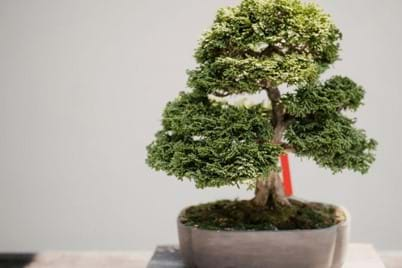Citrus trees are very popular to grow and can be found in most backyards around Australia.
It seems every week we receive questions on what broad array of pests, diseases and deficiencies are ailing your citrus plants. There is a simple secret that can prevent these issues…Feed your trees.
Citrus plants are hungry, hungry, hungry! They have an almost insatiable appetite for nutrients and will soak up whatever fertiliser you can send their way. In return, well nourished citrus trees will become the picture of good health, overcoming trace element deficiencies and developing natural defences against pest insects and diseases.

Where to Start
Good organic matter
Citrus trees have a shallow root systems, this means it is vital to have good drainage system and soil that is rich in organic matter. When planting ensure you have Yates Dynamic Lifter Soil Improver & Plant Fertiliser added into the soil to ensure rich nutrients are present. Only Dynamic Lifter offers the right solution because it is processed organically and a natural product.
Feed your trees regularly throughout the season. Yates Thrive Concentrate Citrus Food is a complete, liquid plant food that provides your citrus trees with the balanced nutrients they require for healthy growth, fruit production and development. Because Thrive feeds through the leaves and roots as you water, it starts to work quickly, so you see the results sooner. Yates Thrive Concentrate Citrus Food is suitable for all types of citrus trees. Use regularly, year round, for best results. If you have high rainfall in your area then nutrients can easily leach from the soil so you will need to fertilise extra.
Pruning
When your trees have finished fruiting, it's a good time to cut them back and prepare them for next year's growth. To do this, cut back any dead/diseased wood, twiggy/straggly growth and any branches growing towards the centre of the tree. Also, remove any branches that are hanging low (almost touching the soil) to help lift the canopy.
Cut back any areas heavily congested with branches to help open the canopy, which will allow for better sunlight and air circulation – ideal conditions for fruit development and it will also help lessen the chance of pests/diseases. If you live in a frosty area, wait until the chance of last frost has passed before pruning.
If your trees are a little old and didn't perform as well this year as it has in the past, it's worth giving them a hard prune – it will rejuvenate them and give them a new lease on life! You may not have the best crop for the next couple of years (while the tree grows back), but it will be worth it. This method is called 'skeletonising' and involves cutting all the growth back, so that you're left with a single trunk and strong, evening spaced branch stumps.
Ensure you use a sharp sterile pair of secateurs and/or loppers when pruning – we don't want to introduce any new diseases or bad pruning practices!
Soil pH
A suitable pH for growing citrus is between 6-7. When the pH is too low you will notice that your citrus may suffer from a magnesium deficiency. Magnesium is very mobile in plants and a shortage of this element results in yellowing of the leaf, starting near the edges and tips of the leaf, leaving a distinct green V-shape in the centre.
This deficiency can be remedied by adding Yates Lime & Dolomite Soil Improver Granules to the soil, which will supply calcium and magnesium and also raise the pH. Water in well after applying. Keep your citrus well fertilised in both spring and autumn by using a specifically formulated citrus food such as Yates Dynamic Lifter Plant Food Pellets Fruit & Citrus.
Diagnose Citrus Problems
Citrus tree losing leaves?
A citrus tree that has lost many leaves and has dead wood might well be sick. Prune any dead wood off to encourage new growth. Problems can also be caused by a severe lack of water. Citrus trees need lots of water. Apply 3-4 cms each week from Spring until Autumn.
Holes in your citrus tree
Holes in your citrus tree can indicate that its been affected by a borer. Borers will attack weak plants and those under stress. If you find a hole get a skewer and pierce it down the hole to remove the borer. If you have numerous holes then it might be best to remove, share a photo with us on Live Chat and we can diagnose further.
Sooty Mould on citrus trees
Sooty mould is another problem to watch out for. This is a fungal problem that needs to be treated with Pest Oil. Sooty moulds are fungi which cover plant leaves, stems and twigs in a black sticky substance. In almost all cases, the sooty mould is secondary to an infestation of insects that secrete honeydew. These insects include aphids, scale, mealybugs and white flies. Treating the insects will remove the source of the honeydew and dry up the sooty mould, which will eventually fall or wash off the foliage. The mould itself does not feed on the plant, however as it covers the leaf surface, it is blocking light and reducing photosynthesis, essential for plant growth. Learn more
Citrus Leaf Miner
Citrus Leaf Miner will leave wiggly lines over leaves. This tiny moth lays larvage into young leaves and causes distortion of the leaves. You can control this by using either out certified for organic garden option Yates Nature's Way Citrus & Ornamental Spray or Pest Oil. Learn More
Bronze Orange Bugs (also known as Stink Bugs) on your citrus
Bronze Orange Bugs These prolific pests will damage citrus trees, often causing fruit to drop. Bronze orange bugs will suck the sap from the tree, flowers and fruit will subsequently fall and stems can turn discoloured and die. Bronze orange bugs are out in force during warmer months. This pest appears first in late winter as a light green nymph, making it hard to spot. As bronze orange bugs develop they gradually darkening as they get older, changing colour into the more familiar orange to bronze. Some bird species will consume these pests but often not enough to control and prevent damage to plants.
The bugs suck the sap from young shoots, fruit and flowers in summer. This causes wilting of young shoots and flower stalks which generally turn black and shrivel. Yates Nature's Way Citrus & Ornamental Spray, which is the only spray registered with the APVMA for home garden control of Bronze Orange Bug on edible citrus.
Problem undiagnosed we have more solutions here – Citrus Problem Solver





